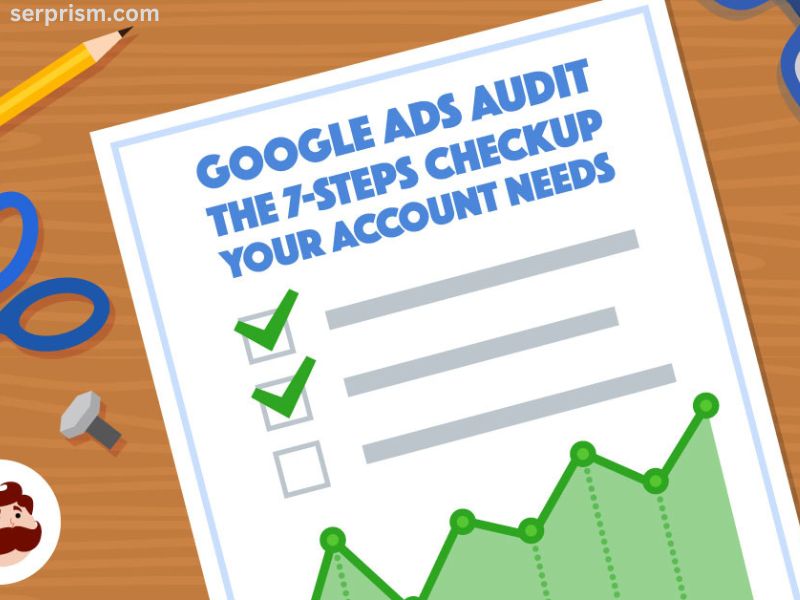
In the ever-evolving landscape of digital marketing, Google Ads remains a cornerstone for many businesses aiming to drive traffic and boost conversions. However, the effectiveness of a Google Ads campaign is heavily dependent on its foundational setup and ongoing optimization. One of the crucial steps in ensuring a successful Google Ads campaign is conducting a thorough Discovery Phase Google Ads audit. This audit is designed to evaluate and refine the initial setup of a Google Ads account to optimize performance and achieve business goals. In this comprehensive guide, we’ll explore what the Discovery Phase Google Ads audit entails, why it is important, and how to effectively carry out this audit to enhance your advertising strategy.
Understanding the Discovery Phase Google Ads Audit
The Discovery Phase Google Ads audit is an initial evaluation process that focuses on assessing the structure and setup of a Google Ads account. The objective of this audit is to identify potential issues, gaps, and opportunities for improvement in the account’s configuration. This phase is critical as it lays the groundwork for the campaign’s success by ensuring that the account is set up correctly and aligned with the business objectives.
Key Components of the Discovery Phase Audit
The Discovery Phase audit involves a thorough examination of several key components of the Google Ads account. These components include:
a. Account Structure
The account structure is the backbone of any Google Ads campaign. It includes the organization of campaigns, ad groups, keywords, and ads. During the audit, evaluate the following aspects:
- Campaign Organization: Ensure that campaigns are organized logically, typically by product line, service, or geographic location. Proper organization helps in managing budgets and tracking performance effectively.
- Ad Groups: Each ad group should contain a tightly themed set of keywords and corresponding ads. This helps in maintaining relevancy and improving Quality Score.
- Keyword Grouping: Assess whether keywords are grouped into relevant ad groups. This affects ad relevancy and performance. Avoid broad keyword groupings that can dilute the effectiveness of your ads.
b. Keyword Strategy
Keywords are the foundation of Google Ads campaigns. An effective keyword strategy can significantly impact the success of your campaigns. During the audit, review:
- Keyword Research: Evaluate the process and tools used for keyword research. Ensure that a mix of short-tail and long-tail keywords is used to capture a wide range of search intents.
- Keyword Match Types: Check the use of different keyword match types (broad, phrase, exact, and negative). Proper match types help in controlling the search queries that trigger your ads.
- Negative Keywords: Ensure that negative keywords are implemented to prevent irrelevant traffic and reduce wasted spend.
c. Ad Copy and Creative
Ad copy and creative are crucial for capturing user attention and driving clicks. Evaluate the following aspects:
- Ad Relevance: Ensure that ad copy is relevant to the keywords and provides a clear and compelling message. Ads should align with the user’s search intent.
- Ad Extensions: Check for the use of ad extensions such as site links, callouts, and structured snippets. Ad extensions enhance visibility and provide additional information to users.
- Testing and Variations: Evaluate the presence of multiple ad variations for A/B testing. Testing different ad copies helps in identifying which messages perform best.
d. Landing Pages
The landing page experience plays a significant role in converting traffic. During the audit, review:
- Relevance: Ensure that landing pages are relevant to the ad copy and keywords. A seamless transition from ad to landing page improves user experience and conversion rates.
- Optimization: Check for landing page optimization, including load times, mobile responsiveness, and clear calls to action. An optimized landing page improves user engagement and reduces bounce rates.
e. Conversion Tracking
Accurate conversion tracking is essential for measuring the success of your campaigns. During the audit, assess:
- Implementation: Verify that conversion tracking codes are correctly implemented on the website. This includes tracking form submissions, phone calls, and other key actions.
- Goals and Events: Review the goals and events set up in Google Analytics and Google Ads. Ensure that they align with business objectives and provide meaningful data.
f. Budget and Bidding Strategy
Effective budget management and bidding strategies are critical for maximizing ROI. During the audit, review:
- Budget Allocation: Evaluate how budgets are allocated across campaigns and ad groups. Ensure that budget distribution aligns with campaign priorities and performance.
- Bidding Strategies: Assess the bidding strategies used, such as manual CPC, enhanced CPC, or automated bidding. Choose a strategy that aligns with your campaign goals and adjust as needed.
g. Quality Score
Quality Score is a measure of ad relevance and performance. During the audit, review:
- Factors Influencing Quality Score: Examine the factors that impact Quality Score, including click-through rate (CTR), ad relevance, and landing page experience.
- Improvement Opportunities: Identify opportunities to improve Quality Score by optimizing keywords, ad copy, and landing pages.
Conducting the Discovery Phase Audit
To conduct an effective Discovery Phase audit, follow these steps:
a. Gather Data and Insights
Start by gathering data from the Google Ads account, including campaign performance reports, keyword performance, and ad metrics. Analyze this data to identify trends, strengths, and weaknesses.
b. Benchmarking
Compare the current performance of the Google Ads account against industry benchmarks and historical data. This helps in understanding how the account measures up and identifying areas for improvement.
c. Identify Issues and Opportunities
Based on the analysis, identify any issues or gaps in the account setup. Look for areas where improvements can be made, such as ad relevance, keyword targeting, or landing page optimization.
d. Develop Recommendations
Create a set of recommendations to address the identified issues and capitalize on opportunities. These recommendations should be actionable and aligned with the business goals.
e. Implement Changes
Work with the relevant stakeholders to implement the recommended changes. Monitor the impact of these changes on campaign performance and make adjustments as needed.
f. Ongoing Monitoring and Optimization
The Discovery Phase audit is not a one-time process but an ongoing activity. Continuously monitor the performance of the Google Ads account and make adjustments based on new data and insights.
Benefits of the Discovery Phase Google Ads Audit
Conducting a Discovery Phase Google Ads audit offers several benefits:
a. Improved Account Structure
A well-organized account structure improves campaign management and performance tracking, leading to more efficient use of budgets and resources.
b. Enhanced Keyword Targeting
Optimized keyword strategies lead to better ad relevancy and improved Quality Score, resulting in higher click-through rates and reduced cost per click.
c. Better Ad Performance
Effective ad copy and creative, along with proper ad extensions and testing, lead to higher engagement and conversion rates.
d. Optimized Landing Pages
Relevant and optimized landing pages improve user experience and increase conversion rates, maximizing the return on ad spend.
e. Accurate Measurement
Proper conversion tracking ensures accurate measurement of campaign performance, allowing for data-driven decision-making.
Conclusion
The Discovery Phase Google Ads audit is a critical step in setting up and optimizing Google Ads campaigns. By thoroughly evaluating the account structure, keyword strategy, ad copy, landing pages, conversion tracking, budget management, and Quality Score, businesses can identify opportunities for improvement and enhance their advertising performance. Implementing the recommendations from the audit can lead to more effective campaigns, better ROI, and ultimately, a stronger online presence. Regular audits and ongoing optimization are essential for staying ahead in the competitive digital marketing landscape and achieving long-term success with Google Ads.
Author




